 I’m not here for the idea of making links to a bunch of previous movies, but some quick and uncertain mental math tells me that Shang-Chi and the Legend of the Ten Rings relies on four previous and mostly unconnected MCU movies[1] to explain its backstory. (Six if you care about the Blip.) None of these movies include Shang-Chi in a credited role, or even acknowledge his existence. And I mean… I’ve read within a small rounding error of 100% of 25 years’ worth of Marvel comics, so I’m obviously here for it, but that is noticeable weight of continuity to labor under, you know?
I’m not here for the idea of making links to a bunch of previous movies, but some quick and uncertain mental math tells me that Shang-Chi and the Legend of the Ten Rings relies on four previous and mostly unconnected MCU movies[1] to explain its backstory. (Six if you care about the Blip.) None of these movies include Shang-Chi in a credited role, or even acknowledge his existence. And I mean… I’ve read within a small rounding error of 100% of 25 years’ worth of Marvel comics, so I’m obviously here for it, but that is noticeable weight of continuity to labor under, you know?
Anyway, the plot is the plot and yes I want to see it again, but nobody is interested in an MCU spoiler review, not even two weeks late like this one basically is. But between a pre-verbal child and Covid, it’s harder to get to the theater on time than it used to be, you know?
What I am interested in is the things that were cribbed from the comics, with which I have a more than passing familiarity[2]. Master of Kung Fu (as a comic) focused on two things. First, both in importance and chronology, a generation-later retelling of the old Fu Manchu stories with a lot of those characters still in play. Fu Manchu is as yellow-perily as ever, and the British spies who oppose him are likewise as clichedly British. Only, now he (Fu) has a daughter set up as his heir apparent[3], and a finely-honed, kung fu assassin-trained son who has turned against him for being, y’know, evil and whatnot. And second, once the comic wasn’t all Fu all the time, it also focused on being a British spy agency story in which Shang-Chi traveled the world with James Bond’s nephew[4] doing superhero-adjacent spy stuff and living out a spy-girlfriend relationship to a Fleetwood Mac soundtrack.
The movie only focuses on the first of those, except obviously not using Fu Manchu and instead pulling in the so-called Mandarin and his ten rings, by way of the terrorist organization we’ve seen before, all the way back in the very first MCU movie. But then it also pulls in a lot of Iron Fist’s mythology, what with an extra-dimensional kung fu city that you can only get to every so many time intervals, unless you know secret ways; and also, their kung fu is magical wuxia kung fu. Sad to be the guy who played Danny Rand in the Netflix show, but zero percent sad to see the expert martial artist not be some random white dude.
My point, if indeed I had one, is that if you were going to cram a mildly problematic Iron Man villain named the Mandarin together with Marvel’s two martial arts characters, this is pretty much the best way to have done so. And furthermore, if you weren’t going to cram those together into one story but instead spread them out among three, well, probably you should cram them together instead.
[1] And a “Marvel One-Shot” that I’d seen before as a Blu-ray extra, which was released on Disney+ two weeks before Shang-Chi’s release date, to minimal fanfare.
[2] While that is a verified fresh statement, I honestly didn’t remember most of these things until the end of the movie. I spent like 2 hours saying to myself “I don’t remember Shang-Chi having a sister,” for example, until suddenly I was all “oh yeah” instead.
[3] Not that he intends to ever do anything so gauche or pedestrian as dying, but still: contingencies.
[4] Among others, but the more important point is that I’m serious about that.
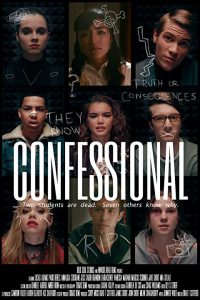 I hate it when research disproves a theory that superficially matches all available facts. See, the main thing that Confessional had going for it was its Covid-conscious style. Seven characters in a video confessional booth, telling (or refusing to tell) their stories and how those stories overlap with each other and with the two students who died on campus on the same night a few weeks ago. The upshot of this premise being, there was rarely more than one actor on screen at any given moment, and never more than two.
I hate it when research disproves a theory that superficially matches all available facts. See, the main thing that Confessional had going for it was its Covid-conscious style. Seven characters in a video confessional booth, telling (or refusing to tell) their stories and how those stories overlap with each other and with the two students who died on campus on the same night a few weeks ago. The upshot of this premise being, there was rarely more than one actor on screen at any given moment, and never more than two. Every movie I watched in early 2020, according to a memory that is at worst only slightly flawed in this regard, had a preview for
Every movie I watched in early 2020, according to a memory that is at worst only slightly flawed in this regard, had a preview for 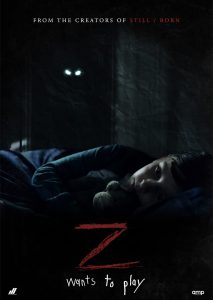 Shudder served me up a more bog standard traditional horror this time, and I’m maybe a little disappointed by it? It’s not that I’m itching to become a giallo aficionado or anything. It’s just that horror in the ’70s is so good. If I were the kind of person who got paid for this, I might call it raw so that I could proceed to call it visceral as well, and be proud of myself for the pun. But what I really mean is, that was when the genre first spread its wings. You had a little blood and a lot of screaming and maybe some goofy eastern European accents, or maybe you had rubber-suited “monsters” or perspective shots and miniatures to make every day critters giant-sized. But the ’70s is where the technology improved and at the same time the censorship limits were removed, and the field just exploded in every direction. By 2019, horror movies are often a lot more polished, but they’re also more prudish and maybe a little dead inside, from that sweet sweet studio money.
Shudder served me up a more bog standard traditional horror this time, and I’m maybe a little disappointed by it? It’s not that I’m itching to become a giallo aficionado or anything. It’s just that horror in the ’70s is so good. If I were the kind of person who got paid for this, I might call it raw so that I could proceed to call it visceral as well, and be proud of myself for the pun. But what I really mean is, that was when the genre first spread its wings. You had a little blood and a lot of screaming and maybe some goofy eastern European accents, or maybe you had rubber-suited “monsters” or perspective shots and miniatures to make every day critters giant-sized. But the ’70s is where the technology improved and at the same time the censorship limits were removed, and the field just exploded in every direction. By 2019, horror movies are often a lot more polished, but they’re also more prudish and maybe a little dead inside, from that sweet sweet studio money.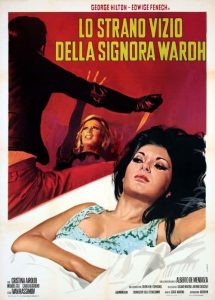 Unexpectedly, two movies in a row on my tragically massive Shudder watch list were giallos[1].
Unexpectedly, two movies in a row on my tragically massive Shudder watch list were giallos[1]. 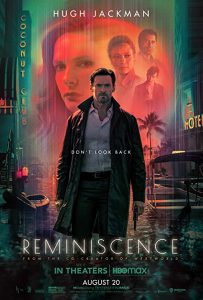 It’s not really clear to me what Kevin Feige is going to do when he tries to introduce the X-Men into the MCU. Not only has Hugh Jackman refused to play Wolverine again, but he apparently got the mutton chops in the divorce with Fox. Seriously, bro looks within an approximation of no differently than he did in 1999.
It’s not really clear to me what Kevin Feige is going to do when he tries to introduce the X-Men into the MCU. Not only has Hugh Jackman refused to play Wolverine again, but he apparently got the mutton chops in the divorce with Fox. Seriously, bro looks within an approximation of no differently than he did in 1999. I’m not here for the idea of making links to a bunch of previous movies, but some quick and uncertain mental math tells me that
I’m not here for the idea of making links to a bunch of previous movies, but some quick and uncertain mental math tells me that  I have just spent upwards of seven seconds contemplating why I would select horror as a tag after also selecting thriller, given that the main feature of both of these genres is that some murdering[1] happens. In the case of
I have just spent upwards of seven seconds contemplating why I would select horror as a tag after also selecting thriller, given that the main feature of both of these genres is that some murdering[1] happens. In the case of 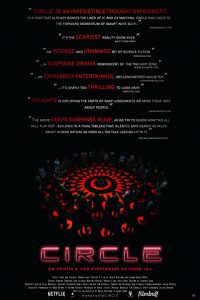 Outside of it showing up on one of the random tabs of movies that Netflix wants me to endlessly scroll through, I have never heard of
Outside of it showing up on one of the random tabs of movies that Netflix wants me to endlessly scroll through, I have never heard of